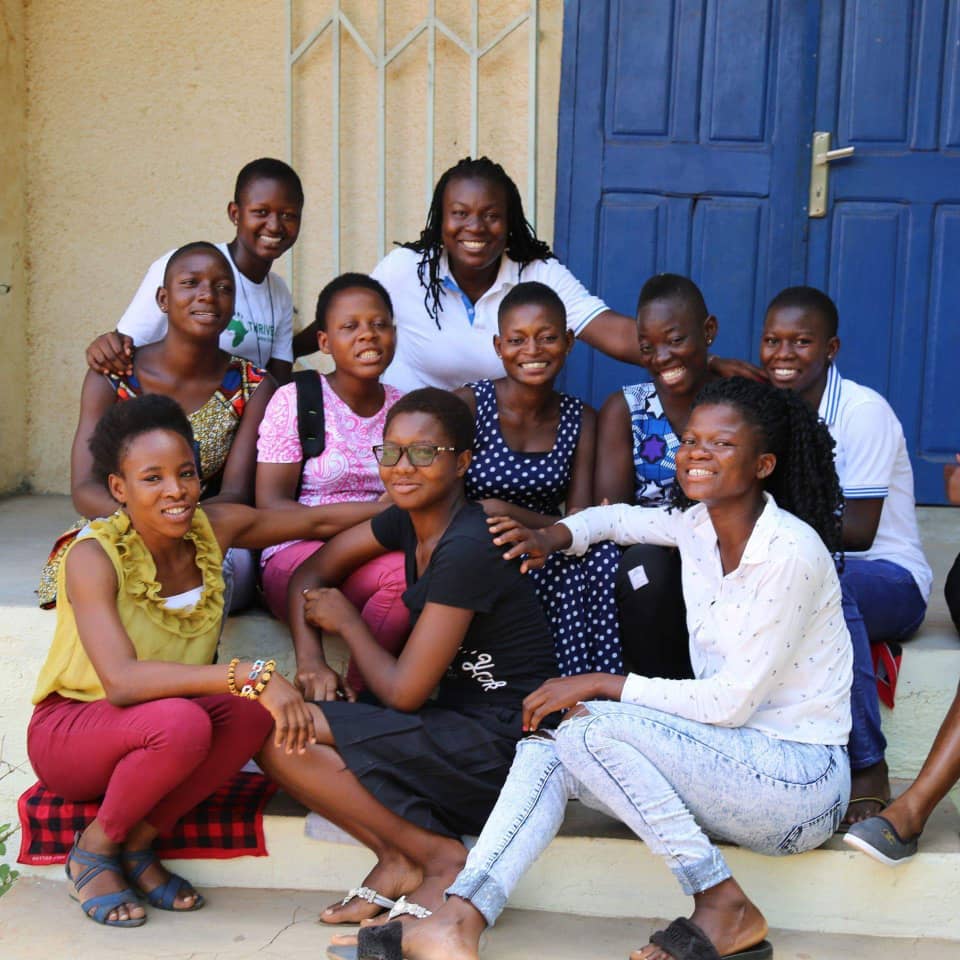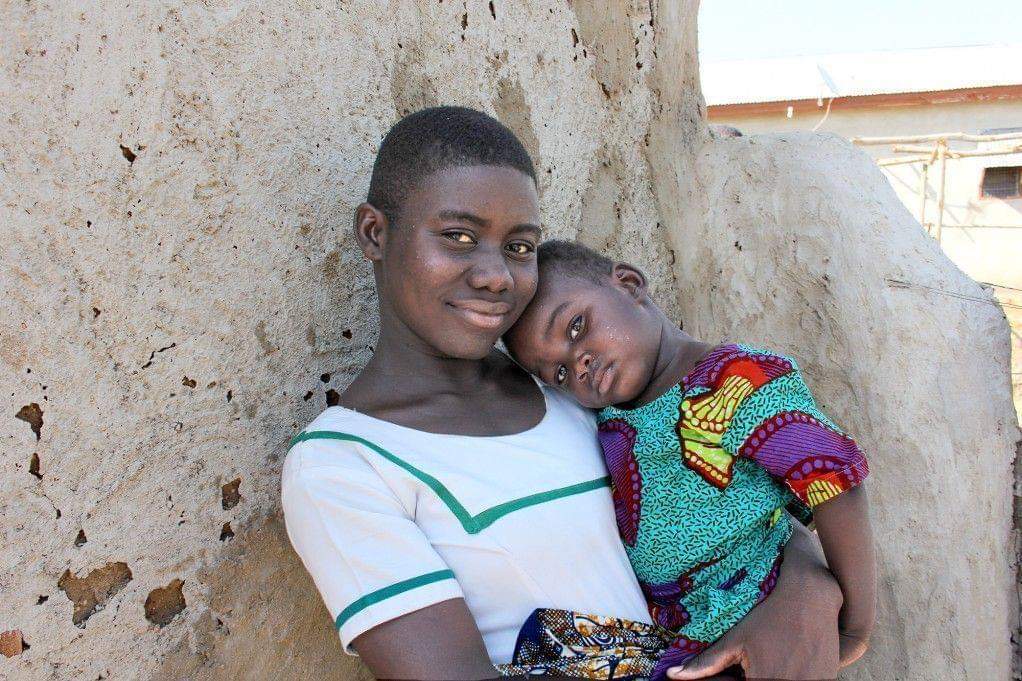As Ghana joins the rest of the world to mark the International Day of the Girl Child, AfriKids Ghana, a child rights Non-Governmental Organisation based in Bolgatanga in the Upper East Region, has called on the Ministry of Education and the Ghana Education to take a critical look at the need for changing rooms for girls and gender friendly washroom in schools.
The day is marked annually on October 11. The global team for this year’s commemoration is ‘Empowering Girls for a Brighter Tomorrow.” Here in Ghana, the theme is; ‘Promoting Access, Transition and Completion of Education for Girls.’
In a press statement issued by Richard Amoah, AfriKids Ghana Strategic Approach to Girls Education Manager (STAGE), AfriKids remains committed to advocating for girls in Ghana, and especially the Northern Savanna Zone and this year’s theme is central to AfriKids programs and projects.
While appealing to the Ministry of Education and the Ghana Education to take a critical look at the need for changing rooms for girls and gender friendly washroom in schools, AfriKids Ghana also appeals to traditional authorities, to support in educating their subjects on dangers of Gender Based Violence and other socio-cultural practices that seek to marginalize the girl child.
Below is the full statement
CELEBRATING INTERNATIONAL DAY OF THE GIRL (11TH OCTOBER, 2019)
GLOBAL THEME: EMPOWERING GIRLS FOR A BRIGHTER TOMORROW
GHANA THEME: ‘PROMOTING ACCESS, TRANSITION AND COMPLETION OF EDUCATION FOR GIRLS’
Nearly 26 years ago, some 30,000 women and men from nearly 200 countries arrived in Beijing, China for the Fourth World Conference on Women, determined to recognize the rights of women and girls as human rights. The conference culminated in the adoption of the Beijing Declaration and Platform for Action: the most comprehensive policy agenda for the empowerment of women.

On the International Day of the Girl Child with the aim of ‘empowering girls for a brighter tomorrow by promoting access, transition and completion of education for girls’
AfriKids remains committed to advocating for girls in Ghana, and especially the Northern Savanna Zone. This year’s theme is central to AfriKids programs and projects.
Our experience and work with adolescent girls living in emergency contexts aims to address their overall subordination and exposure to violence, whilst investing in unlocking their potential, and reducing their vulnerabilities as a marginalized group. It is important to note that the social and economic drivers of migration, violence against girls, poverty, child marriage, education inequality, gender-based violence, climate change, self-esteem, and girls’ rights to enter places of worship or public spaces during menstruation, still persist.
Government over the years through various legal instruments have demonstrated some commitment to providing opportunities for all girls to receive education; the Education Strategic Plan, 2010-2015, 2015-2020 and the recent one 2018-2030, the Education Act, 778(2008), the National Youth Policy of 2010 etc. These have inured to initiatives such as Capitation grants, LEAP, Fast Tract Initiative, School Feeding, GPASS among others. Other major global commitments such as the MDGs and the recent SDGS all are geared towards creating opportunities for all children of school going age including girls to access education and skills for a better future. Though these initiatives have caused some progress in girls accessing and progressing in education, many girls still face various barriers to access and transition at the advanced stages of education.
Adolescent girls are simply not allowed to enjoy their childhood and no space for socialization. They are incessantly suffocated in avenues of realizing their rights as girls.
Inequalities in education is a barrier to many girls accessing and progressing from primary level of education. Available records indicate that in the Northern Region over 65% of girls at age 15 have not received any formal education as compared with the national average of 21 % (GSS, 2007).
The 2010 population census of Ghana show that female participation in schooling dropped from 34% in 2010 to 24% in 2012, while that of boys dropped marginally from 18% to 14% within the same period (GSS, 2012). The report further indicates that in the northern region, 59.9% of children have never been to school, for those in school, females are more at risk of dropping out of school at the primary level than their male counterparts.
In the case of retentions and transition, most girls in the Northern Savana Zone struggle to progress from primary school. According to a report by Camfed Ghana on what works in Girls’ Education in Ghana, it is found that whiles the average retention for girls at the primary school is 59.6%, it was 85% at the JHS. This suggest that when girls are able to transition to the higher levels in schooling, they are able to complete the basic education (CAMFED, 2012). This means it is imperative that appropriate supportive systems are made available for girls not to only access, but progress to the highest level in order to secure higher educational credential for that competitive knowledge for a productive future.
In Ghana, children with disability are mostly children who reflect evidence of marginalization and vulnerability and are generally described as the last ‘batch’ of out-of-school children. Projections from the 2010 Population and Housing Census (PHC), indicate that about 2% of the entire population of school going children aged between 6-14 years have some form of disability, of which 14% are out of school. Again, this shows the marginalisation of children with disability at the family and school levels.
It is in this vain that AfriKids over the years have implemented several interventions in formal education and skills training to empower children and youth especially girls to have knowledge and skills for a better future.
AfriKids Ghana is currently partnering with World Education Inc. to implement the Strategic Approaches to Girls Education (STAGE), with support from DFID to provide 4,050 out of school girls (10 – 14 years) with formal school and another 1,000 (15 – 19) in skills empowerment across 5 districts in the Northern Savanna Zone. Acknowledging that saving and empowering the girl-child and unlocking her potential especially in the Northern Savanna Zone is a global effort responding to the Sustainable Development Goal 4.
Girls are breaking boundaries and barriers posed by stereotypes and exclusion, including those directed at children with disabilities and those living in marginalized communities. As entrepreneurs, innovators and initiators of global movements, girls are creating a world that is relevant for them and future generations
The progress since the Beijing Declaration is remarkable, but girls around the world – especially those living in rural areas or humanitarian settings and those with disabilities still need us to stand with them to achieve their full potential. This agenda calls for a world where every girl and woman can realize all her rights, such as to live free from violence, to attend and complete school, to choose when and whom she marries, and to earn equal pay for equal work.
Girls are resilient and have an enormous untapped potential to contribute to healthy and peaceful communities. Today, and every day, let us do everything we can to listen to girls and empower them with the individual abilities, social support and the resources they need to survive, thrive and transform their communities, even in the most difficult of circumstances.
Girls are the largest generation in history and a vast source of ideas and solutions for all career fields. Yet far too often, girls are not given the space and opportunities they need to achieve their full potential. Multiple barriers include systematic discrimination, biases and lack of training.
On this special day of the Girl-Child, AfriKids Ghana is appealing to the MOE/GES to take a critical look at need for changing rooms for girls and gender friendly washroom in schools; to our traditional authorities, to support in educating their subjects on dangers of Gender Based Violence and other socio-cultural practices that seek to marginalize the girl child
AfriKids equally appeal to CSOs working to empower women and girls to collaborate more effectively in their operations and to our dear girls, we urge them to remain assertive and supportive of each other to avoid being taken advantaged of or abused.
We need to equip girls with transferable and lifelong skills such as critical thinking, creativity and digital awareness.
As we come together to celebrate our progress, AfriKids and its development partners would wish to ask.
- The state to recommit herself to the promotion of the welfare of girls
- Traditional leaders to do away with all forms of social and cultural barriers that impede the progress of the girl child.
- Civil society organizations to provide adequate and targeted support towards the promotion of the welfare and empowerment of girls in both the formal and non-formal sectors of life.
- Parents should also take active responsibility to support and empower their girls in both formal and non-formal education for a better future.
In summary, we urge all to work assiduously to reinforce girls’ rights to a safe childhood, to decide for themselves, to decide on their education and skills path or simply, their right to the future they want.
Thank you, God bless our homeland, Ghana and make our national Great and strong!!!
Richard Amoah, AfriKids Ghana Strategic Approach to Girls Education Manager (STAGE)
Source: A1Radioonline.com|101.1MHZ|WILLIAM JALULAH|Ghana


